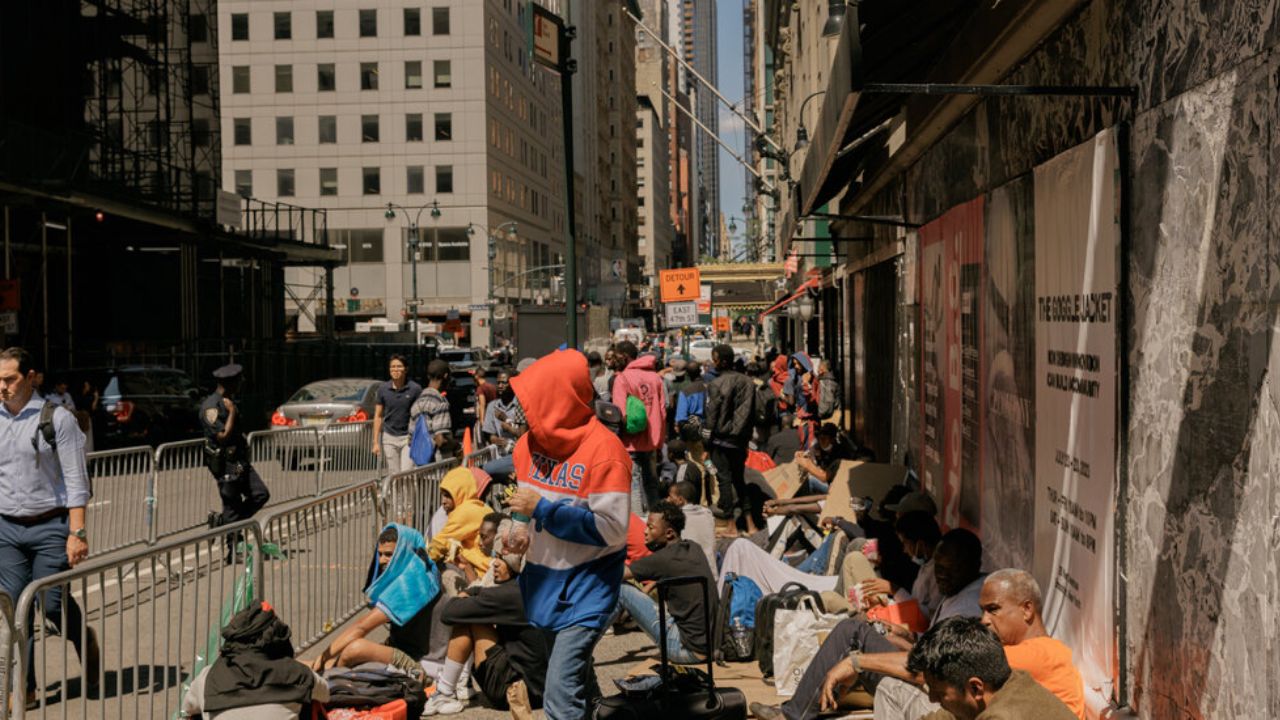New York City, the largest and most diverse metropolis in the United States, is facing a humanitarian and political challenge as it struggles to accommodate a surge of migrants and asylum seekers from Latin America and the Caribbean. The influx, which has reached over 100,000 people in the past year, has strained the city’s resources, sparked public discontent, and exposed the rifts within the Democratic Party over immigration policy.
The Causes and Consequences of the Migrant Surge
The migrants and asylum seekers arriving in New York City are fleeing from a variety of push factors in their home countries, such as economic collapse, political repression, gang violence, natural disasters, and climate change. Some of the most affected countries are Venezuela, Haiti, Cuba, Ecuador, and the Northern Triangle of Central America (El Salvador, Guatemala, and Honduras).
Many of them cross the U.S.-Mexico border, where they are processed by the federal authorities and then released into the interior of the country, often with a notice to appear in immigration court. Some of them have relatives or friends in New York City, while others are drawn by the city’s reputation as a welcoming and diverse place. Some of them are also transferred to the city by the federal government or by non-governmental organizations that provide humanitarian assistance.
However, once they arrive in New York City, they face a host of challenges, such as finding affordable housing, accessing health care, enrolling their children in school, obtaining legal representation, and securing employment. Many of them end up in the city’s shelter system, which is already overcrowded and underfunded. According to the latest data, nearly 60,000 newly arrived migrants are living in the city’s shelters, accounting for about half of the total shelter population.
The migrant crisis has also created a fiscal burden for the city, which has spent over $1 billion so far to provide services and assistance to the newcomers. Some estimates say the cost of housing alone could surpass $4.3 billion by July 2024. The city has requested more federal aid and cooperation, but has received little response from the Biden administration, which is facing its own immigration challenges at the southern border and in other parts of the country.
The Political Implications of the Migrant Crisis
The migrant crisis has also become a source of political controversy and division, both among the public and within the Democratic Party. According to a recent poll by the Siena College Research Institute, 75% of New York Democrats see the migrant crisis as a serious problem, and 58% of them say New Yorkers have already done enough and should try to slow the flow of migrants. The poll also found that voters disapprove of the way Governor Kathy Hochul and Mayor Eric Adams are handling the situation, and that they are losing confidence in President Joe Biden, who trails former President Donald Trump by 6 points in a hypothetical matchup.
The migrant issue has also exposed the fault lines within the Democratic Party, which is divided between the progressive and moderate wings over immigration policy. The progressives, led by Representative Alexandria Ocasio-Cortez and other members of the so-called Squad, advocate for a more open and humane approach, such as granting legal status and citizenship to the undocumented immigrants, expanding refugee admissions, and ending the detention and deportation of migrants. The moderates, represented by Hochul and Adams, favor a more pragmatic and balanced strategy, such as increasing border security, enforcing immigration laws, and cooperating with the federal government and other states.
The migrant crisis could have significant implications for the 2024 elections, both at the state and national levels. In New York, the Republicans are hoping to capitalize on the public dissatisfaction and frustration with the Democrats’ handling of the issue, and to regain some of the seats they lost in the 2022 midterms. In the presidential race, the Democrats are worried that the migrant crisis could erode their support among the suburban and swing voters, who are crucial for their chances of winning the White House and retaining control of Congress.
Conclusion
New York City is facing a migrant crisis that is testing its capacity, resources, and values. The influx of migrants and asylum seekers from Latin America and the Caribbean has created a humanitarian and political challenge for the city and its leaders, as well as for the Democratic Party and the Biden administration. The migrant issue is likely to remain a contentious and divisive topic in the public discourse and the electoral arena, as the city and the country grapple with the complex and multifaceted aspects of immigration policy.
